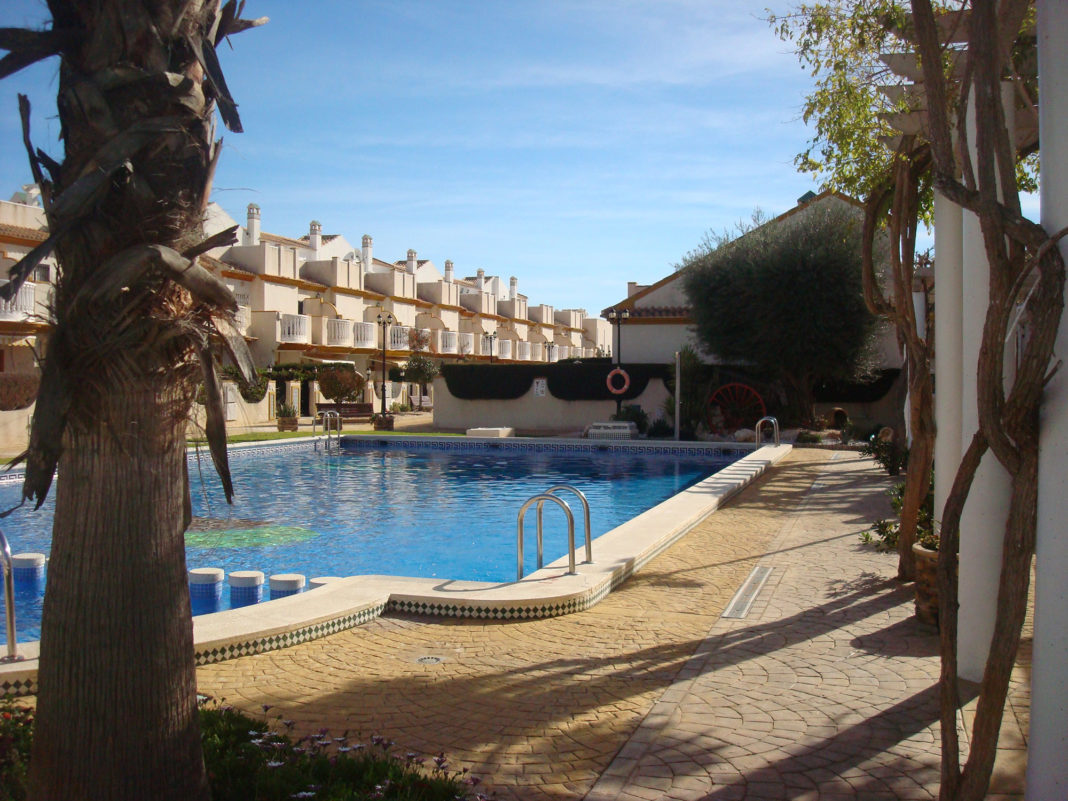Phase 2 of de-confinement allows establishments to open their community pools. However, the majority have decided to keep them closed because of the regulations that the government insists must be applied, which have now pushed back their opening, according to the president of the association of tourist apartments on the Costa Blanca (Aptur), Miguel Ángel Sotillos .
He says that because of these regulations the reservations in tourist apartments have been harmed.
The theory says that the property has to control the capacity, allowing only 30% of the usual volume, as long as this guarantees that there is a distance of two metres between the bathers. In addition, you must make an appointment for its use, carry out cleaning tasks after every session and constantly check the quality of the water. Such measures mean that the majority have chosen not to open their pool and people are not making holiday reservations.
The president of the College of Property Administrators of Alicante, Augusto Soler, said that there are various problems that communities are now facing due to these regulations, which equate to those in municipal swimming pools, but without having the same opportunities.
He says that many of them, normally those that do not exceed 200 square meters, are not bounded, which would allow them to have greater control, neither are there lanes, nor procedures to provide users with appointments, nor do pools have anyone in place who is responsible for ensuring that all this is fulfilled.
Smaller pools do not have the obligation to hire a lifeguard every summer, and so to apply all these measures to reopen these private pools he described as ‘absolute chaos’
The one thing above all that is certain in this current pandemic is the ‘uncertainty and the daily change in government decisions,’ which is hurting those organisations and companies that that plan their workload months ahead.
Sotillos announced that he will request a joint meeting with urbanisation administrators, Turisme, as well as the ministries of Interior and Health, but any such meeting could take weeks or even months to organise.
He said that the rules need to be more realistic when applied to community swimming pools, and there must be some flexibility depending on the characteristics of the property.
The new rules state that the maximum capacity allowed in pools will be 30% and communities must employ someone who is solely responsible and who can control and limit the access of the owners.
To go to the pool you must first of all make an appointment, with schedules then organised in time periods, outside of which you will not be able to use the facility. “But you can’t manage pre-appointments without staff or at least a phone, and the vast majority of homeowners’ communities lack both of those resources.”
Users must also be able to guarantee the safety distance of at least two metres, both in the pool itself and in the land area surrounding the pool by means of signs.
In cases where there is a lifeguard, that individual should only be responsible for supervising and watching over the activities of those people who are actually using the pool, warns College of Community Administrators.
Communities and bathers that disregard these new regulations would face a fine of 1500 euros





